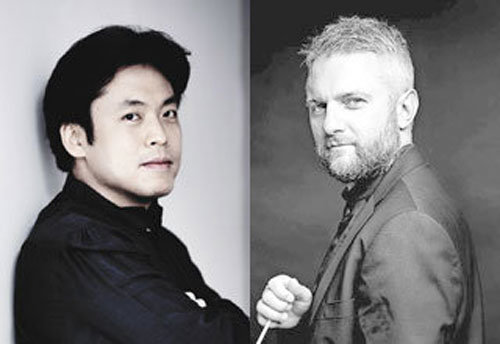Chamber Orchestra of Europe returns to Seoul
Chamber Orchestra of Europe returns to Seoul
Posted October. 14, 2022 07:39,
Updated October. 14, 2022 07:39

The Chamber Orchestra of Europe (COE) is about to make its second visit to South Korea in four years with a group of principal players and musicians from orchestras in many European countries.
South Korean pianist Kim Sun-wook collaborates with the COE on Beethoven’s Piano Concerto No. 3, one of the most iconic pieces on his repertoire list. Kirill Karabits, chief conductor of the Bournemouth Symphony Orchestra, will conduct the orchestra in collaboration with Kim. They have often played together. The performance is scheduled at the Concert Hall of Seoul Arts Center, Seoul on Nov. 5 and 8.
Kim always hopes to be recognized as a performer who does not limit his playing to Beethoven or Brahms. Beethoven has always been the centerpiece of his repertoire list. He has as many as three albums playing Beethoven's sonatas, including his debut album. He even released an album on Piano Concerto No. 5 "Emperor,” with conductor Chung Myung-whun leading the Seoul Philharmonic Orchestra. The Piano Concertos No. 3 and No. 4 will be performed on Nov. 5 and 8, respectively.
The pieces on the COE’s playlist in Seoul represent the era of Beethoven’s revolutionary spirits. On Nov. 5, the orchestra is scheduled to play Schubert: Symphonies, D125, 589, Italian Overtures, Mendelssohn: Symphony No. 4 Italian, followed by Beethoven’s Overture to Coriolan and Symphony No. 7 on Nov. 8, as part of the “All Beethoven” program.
To Kim, Karabits, born in Ukraine, is considered one of the most trusted musical companions. When he stood in front of the Chicago Symphony Orchestra for the first time in 2019, Kim collaborated on Mendelssohn: Piano Concerto No. 1. Having broadened his musical horizons as a conductor, Kim made a debut last season in Europe. His first performance was on the stage of a concert of the Bournemouth Symphony Orchestra, joined by Karabits in 2009.
Founded in 1981, the COE is well-known for the spontaneous delicacy of its ensemble created by musicians not led by any music director or chief conductor. It comprises 60 players from different European orchestras, including chief musicians, music professors, and chamber music performers. For the past 40 years, the two-time Grammy and three-time Gramophone winner has released more than 250 albums, widely recognized as one of the world’s best ensembles.
gustav@donga.com
Headline News
- Joint investigation headquarters asks Yoon to appear at the investigation office
- KDIC colonel: Cable ties and hoods to control NEC staff were prepared
- Results of real estate development diverged by accessibility to Gangnam
- New budget proposal reflecting Trump’s demand rejected
- Son Heung-min scores winning corner kick







